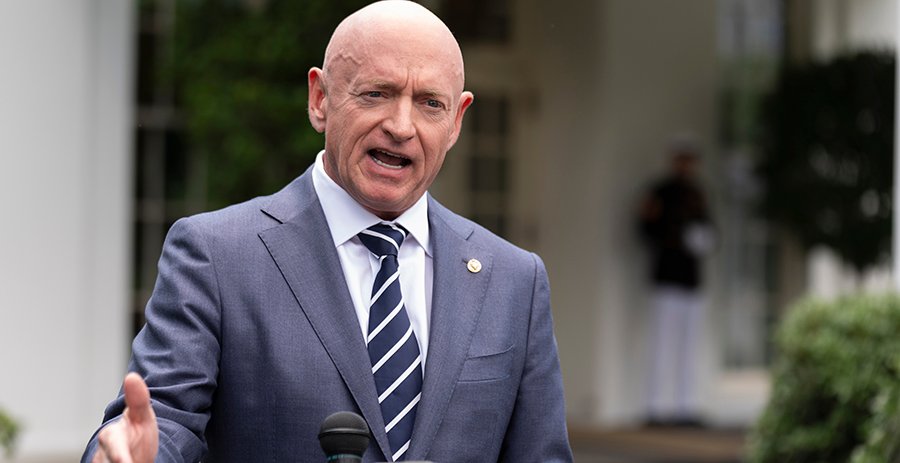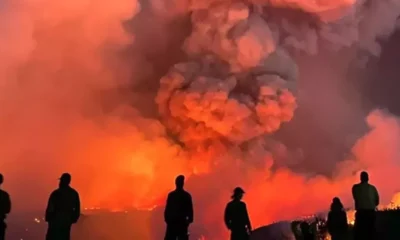Business
Sen. Kelly Joining Presidential Ticket Could Shake Up Arizona Politics

U.S. Sen. Mark Kelly is emerging as a potential candidate for vice president following President Joe Biden’s decision to step aside. This speculation introduces a significant dynamic to Arizona’s political landscape, potentially impacting forthcoming elections in the state.
An Arizonan on the presidential ticket could energize state voters, yet it also implies another Senate race—the sixth in as many election cycles. Kelly could maintain his Senate seat while campaigning for vice president. However, if the hypothetical Harris-Kelly ticket prevails in November, Gov. Katie Hobbs would appoint his interim successor. A special election would then be held in 2026, with candidates competing for a full Senate term in 2028.
Sen. Kelly and his wife, former U.S. Rep. Gabby Giffords, have already endorsed Harris, refraining from further comments. Kelly’s spokesperson did not respond to requests for comment. “Harris has my support for the nomination, and Gabby and I will do everything we can to elect her President of the United States,” Kelly posted on X.
Gov. Hobbs also pledged her support for Harris, with her office choosing not to comment further on Biden stepping out or vice-presidential speculations. Arizona has hosted a U.S. Senate race in every election since 2016. After Sen. John McCain’s reelection and subsequent passing in 2018, Jon Kyl temporarily filled the seat before resigning. Kyrsten Sinema won the second Senate seat in 2018, but Martha McSally was appointed to Kyl’s seat. Kelly later defeated McSally in a special election and secured a regular term in 2022.
This election cycle, U.S. Rep. Ruben Gallego and former gubernatorial candidate Kari Lake are vying for the state’s fifth consecutive Senate race. The victor will defend the seat in 2030, marking Arizona’s eighth consecutive Senate election. By November, Arizona will have elected its seventh senator since 2016.
Paul Bentz, senior vice president at HighGround Public Affairs, highlights these Senate races’ national prominence and substantial expenditure. “High spending and very public races have been the norm, leading to voter fatigue,” Bentz noted. Another high-profile race could arise if Kelly vacates his seat. “The road to the White House and Senate control likely passes through Arizona,” Bentz added.
Other political figures on the vice-presidential shortlist include Transportation Secretary Pete Buttigieg, Kentucky Gov. Andy Beshear, Pennsylvania Gov. Josh Shapiro, and North Carolina Gov. Roy Cooper. Michigan Gov. Gretchen Whitmer, another potential candidate, has expressed disinterest in leaving her state. Bentz considers Kelly a strong contender with a compelling background but suggests his vice-presidential chances are slim. “He’s less known and less experienced on the political scene,” Bentz remarked.
The timing of the vice-presidential announcement remains uncertain ahead of the Democratic National Convention in Chicago, starting August 19. Kelly’s political ascent is rooted in his background as an astronaut and a tragedy that brought national attention. Giffords survived a horrific shooting in Tucson, which ended her political career but led the couple to found a gun-control advocacy group. Kelly has since focused on issues like national security, military affairs, and the U.S. West’s drought in the Senate. He played a crucial role in the CHIPS and Science Act, aimed at boosting U.S. semiconductor manufacturing.
A former Navy test pilot, Kelly flew 39 combat missions during the Gulf War before his NASA career. Originally from New Jersey, he settled in Tucson with Giffords after retiring. Unlike Arizona Sen. Kyrsten Sinema, who became an independent, Kelly has maintained Democratic grassroots support without alienating independents.
— Jonathan J. Cooper of the Associated Press contributed to this story.
















